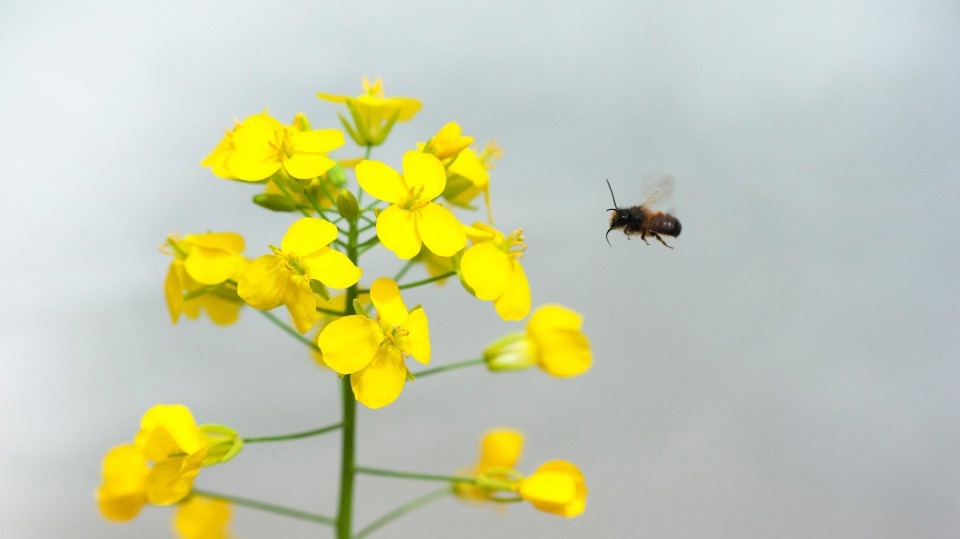Reviewed by Danielle Ellis, B.Sc.Sep 16 2022
It is well known that strawberries whose blossoms have been visited by bees grow larger; however, it is not yet understood how neonicotinoid pesticide exposure to bees affects strawberry development. Two findings have been established by a Swedish research team in a recent study that was published in PLOS ONE.

Image Credit: Albin Belsing.
We studied bees that ingested clothianidin, a pesticide that was previously used in rapeseed to control flea beetles. Our study indicates that the substance made the bees slower and impaired their ability to pollinate the strawberry flowers.”
Lina Herbertsson, Biology Researcher, Lund University
Twelve outdoor cages with access to rapeseed and strawberry blooms were utilized by the researchers to allow solitary bees to forage. The rapeseed had received clothianidin treatment in half of the cages. To visit the same amount of treated rapeseed flowers, the bees exposed to it took longer than ordinary bees.
Another discovery was revealed when the researchers later weighed the strawberries. The strawberries showed out to be smaller if they had been pollinated by bees that gathered from rapeseed treated with clothianidin.
Previous studies have shown that clothianidin affects wild bees negatively in terms of foraging speed, development and reproduction. Our results indicate that it can also impair the bees' ability to pollinate strawberry flowers.”
Lina Herbertsson, Biology Researcher, Lund University
She stresses the significance of exercising caution when interpreting the findings.
In our study, we did not identify the cause for the lower strawberry weight, and after only having performed a single study under rather special circumstances, we also don't know if this is a general pattern.”
Lina Herbertsson, Biology Researcher, Lund University
Clothianidin and two other neonicotinoids were totally outlawed by the EU in 2018 for use in protecting outdoor plants. Thiamethoxam, one of the other neonicotinoids, has already been demonstrated by another study team to impair the bumblebee pollination of apples.
The new findings, according to Lina Herbertsson, are significant because they demonstrate that pesticides might have more complex effects than are typically anticipated, even if these compounds are no longer employed for outdoor plant protection in European agriculture.
Lina Herbertsson concludes, “Although clothianidin is now banned, other substances that affect the nervous system of insects in a similar way have partly replaced it. It is therefore of the utmost importance to continue this research and investigate how these substances affect bee behavior and pollination.”
Source:
Journal reference:
Herbertsson, L., et al. (2022) Seed-coating of rapeseed (Brassica napus) with the neonicotinoid clothianidin affects behaviour of red mason bees (Osmia bicornis) and pollination of strawberry flowers (Fragaria × ananassa). PLoS ONE. doi.org/10.1371/journal.pone.0273851.